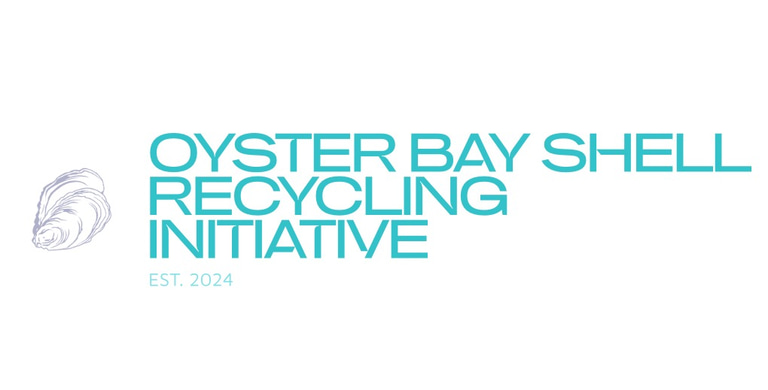The Role of Policies in Oyster Shell Recycling: A Local and National Perspective
Oyster shell recycling programs are vital in environmental sustainability. On the national level, laws like the Coastal Zone Management Act provide a framework for states to address marine conservation. Federal grants incentivize states to establish recycling programs that replenish oyster reefs, which help improve water quality (Garmestani et al., 2019). Yet, most are limited in scalability by lacking a broad national recycling mandate. Many programs fill the gap with nonprofits or private partnerships. On the national level, policies could build on such programs by incentivizing businesses and restaurants to recycle shells. Furthermore, funding and technical assistance to coastal states may amplify the environmental impact of local programs. In New York State, recycling oyster shells complements larger goals- the Climate Leadership and Community Protection Act- calling for ecosystem restoration (Betsill & Bulkeley, 2021). The state has taken the lead in this regard, though it has yet to institute a strong statewide recycling program. Programs currently in place, such as ours, rely heavily on volunteers and grants, which leaves gaps in coverage and scalability at best. Our program could be significantly scaled up through restaurant participation mandates and logistic subsidies by the state. Such a statewide program would ensure that jobs are created while positively affecting the local economy and New York's waterways. This would go in tandem with the environmental goals of the state by manifesting its leadership in marine conservation. New York State has been trying to pass a mollusk shell recycling tax credit through various pieces of legislation, including Senate Bill 2019-S4718A. The bill seeks to encourage active participation by businesses, such as restaurants and seafood suppliers, in recycling programs through tax credits proportional to the volume of shells recycled (NY State Senate Bill 2019-S4718A, 2019). In return, the state hopes to eliminate some of the logistical and financial impediments to broader participation. Credits could, for example, lower costs for storage and transportation, the most significant impediment to recycling. Second, the bill places the shell recycling program into a broader climate and ecological context and emphasizes how shell recycling contributes to biodiversity promotion to further key goals pursued by New York. The mollusk shell recycling tax credit would benefit programs like ours, which today exists on public donations and volunteer participation, if passed, it will allow for significant scaling and efficiency of the recycling efforts. Second, linking economic incentives to measurable environmental success would foster greater collaboration among municipalities, nonprofits, and for-profit companies (NY State Senate Bill 2019-S4718A, 2019). The potential benefits of this legislation don't stop at the environment; they also offer positive economic impacts, including logistics and shell processing jobs. This bill represents an opportunity, as it develops, for how grassroots environmental initiatives can be translated into statewide policy and serves as a model that other coastal states can replicate. Municipalities might partner with nonprofits to recycle shells and may even have their own Shell Recycling Programs, such as the Town of Oyster Bay. Still, there is no countywide mandate for participation, and restaurants frequently have logistical issues with storing and transporting the shells, which deters participation. In addition to working in coordination with environmental groups like ours to further streamline the collection of the shells, Nassau County and even the Town of Oyster Bay could take the lead in passing ordinances requiring shell recycling and incentivizing compliance. A coordinated local policy would increase participation and create a replicable model for other coastal counties, advancing regional conservation efforts. Besides, significant logistic and financial challenges remain some of the insurmountable barriers to oyster shell recycling at all scales. Transportation and storage can be expensive, and the costs discourage many restaurants from taking part in recycling. Federal funding and state and local tax incentives can balance the costs. Partnerships with nonprofits reduce overall costs and offer technical resources to make recycling more available. Public outreach is important, too. Regarding protecting coasts and improving biodiversity, the latter option for citizens nationally would raise the national engagement scale in such ecologically beneficial work as oyster reef restoration (Garmestani et al., 2019). Targeted outreach to selected areas of Nassau County such as the Town of Oyster Bay, can further extend a heightened degree of effectiveness within recycling programs at the local levels. The approach to all of these barriers on a comprehensive basis will help ensure participation across significant sections of any population. Hence, oyster shell recycling needs to succeed in cohesion from the local level to the national. Specific policies can consolidate the participation of Nassau County and can, in this way, provide a model in other areas. New York's leadership in state environmental policies may escalate these kinds of projects to fit into their plans on climate change. These efforts will be expanded nationally with stronger mandates and funding mechanisms, ensuring a sustainable future for oyster populations and coastal communities. Meeting the logistical challenges, promoting education, and encouraging collaboration will allow oyster shell recycling to thrive as one of the cornerstones of marine conservation. Coordinated action at every level will be essential to securing these benefits in the long term.
Gerry Metaxas
12/31/20241 min read


My post content
Mission
Restoring marine habitats through oyster shell recycling.
JOIN OUR Community
© 2024. The Oyster Bay Shell Recycling Initiative, Inc. - A Registered 501 (c) 3 Not for Profit Organization
